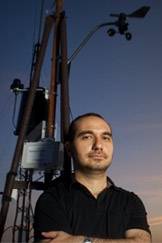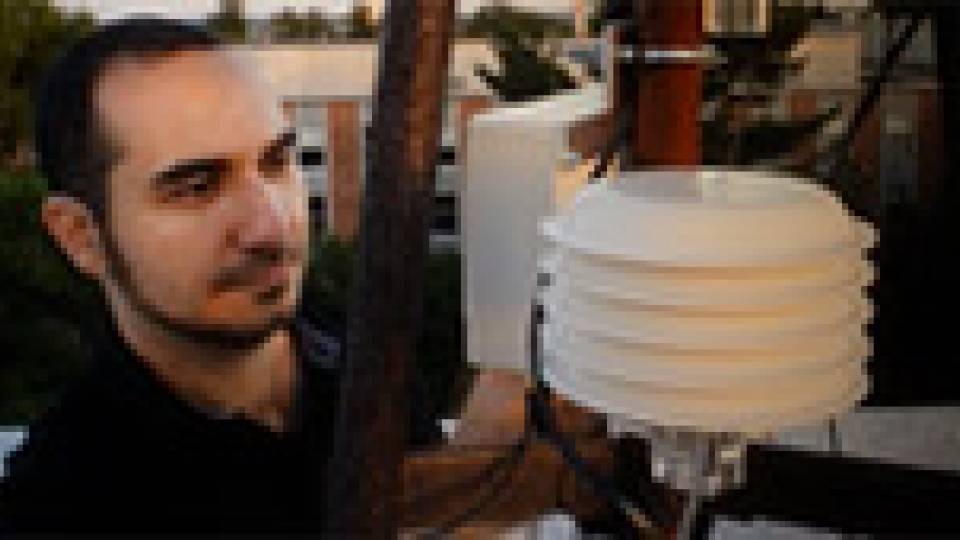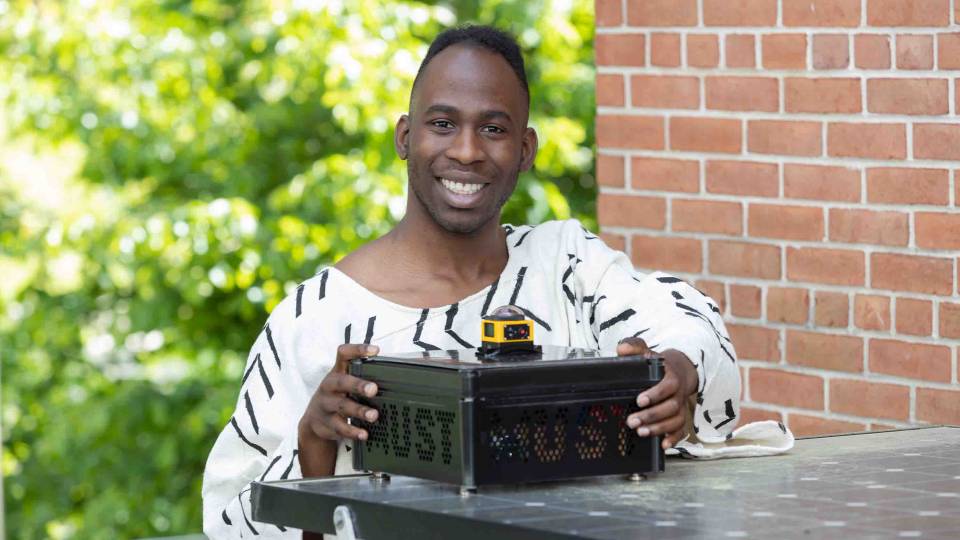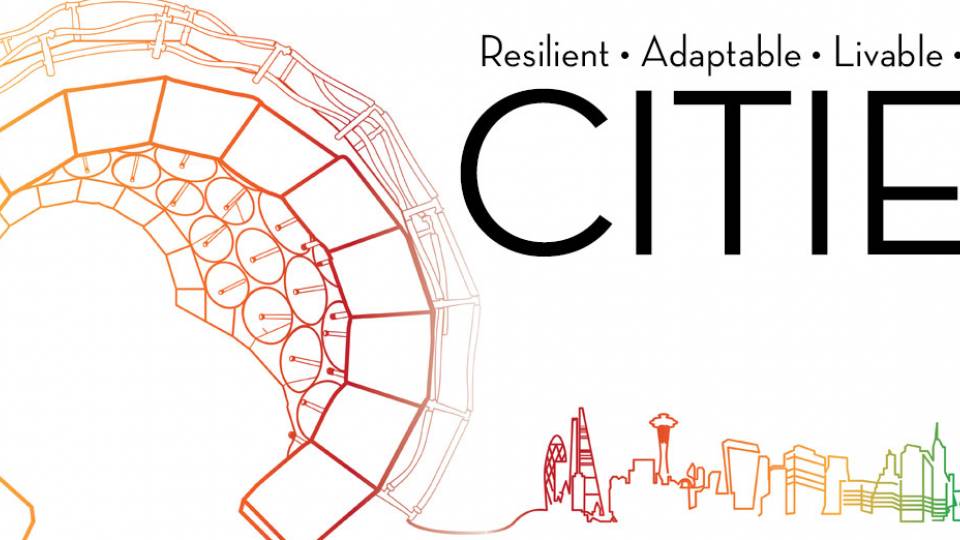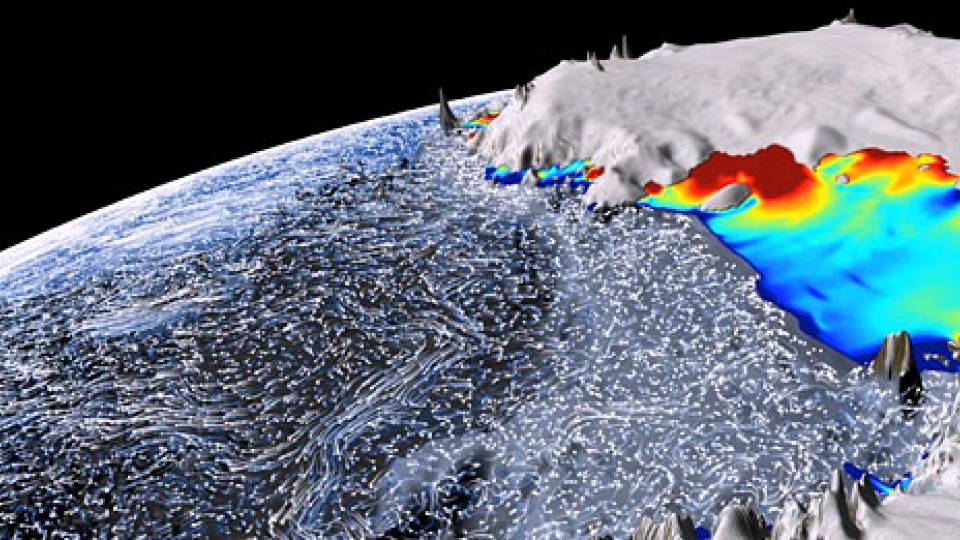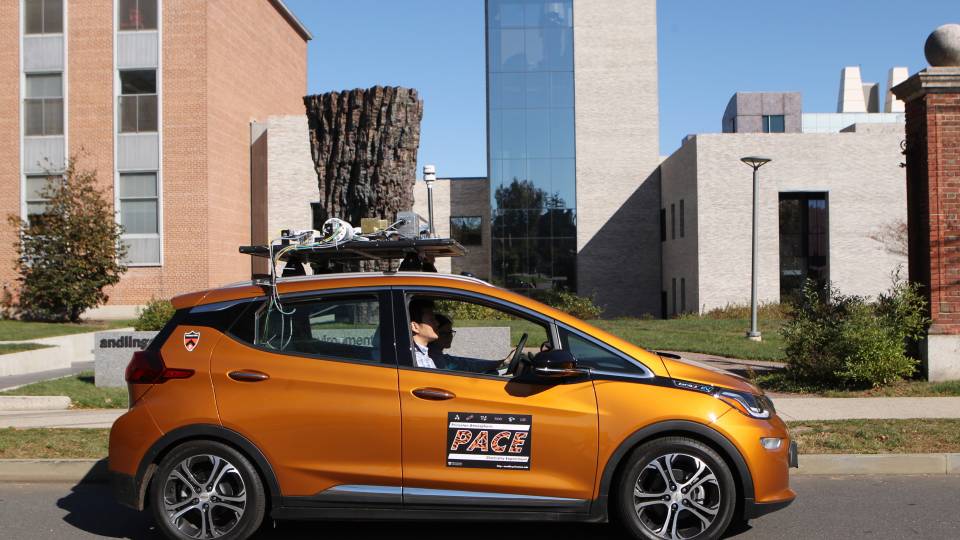In mapping the microclimate of Princeton's campus, Elie Bou-Zeid, an assistant professor of civil and environmental engineering, hopes to better understand how local environments affect the global climate -- and vice versa.
In this video excerpt of a full-length video produced by the School of Engineering and Applied Science Bou-Zeid describes his research and his method for collecting data. So far he has placed a dozen sensing nodes across campus to gather data on energy, water and carbon that ultimately will lead to a more complete understanding of how different building materials and vegetation interact with the local climate.
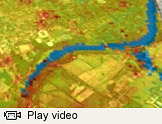
Play the video "Princeton's Microclimate: Global lessons from local buildings".
"Global climate models will tell you what's happening at the very large scale," Bou-Zeid said. "What we try to do is downscale these climate predictions to the local level. So we want to see how a small city will respond to a climate change given by these global climate models."
View real-time data from the sensor network.
